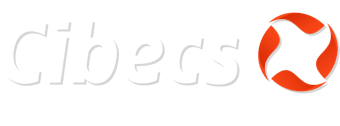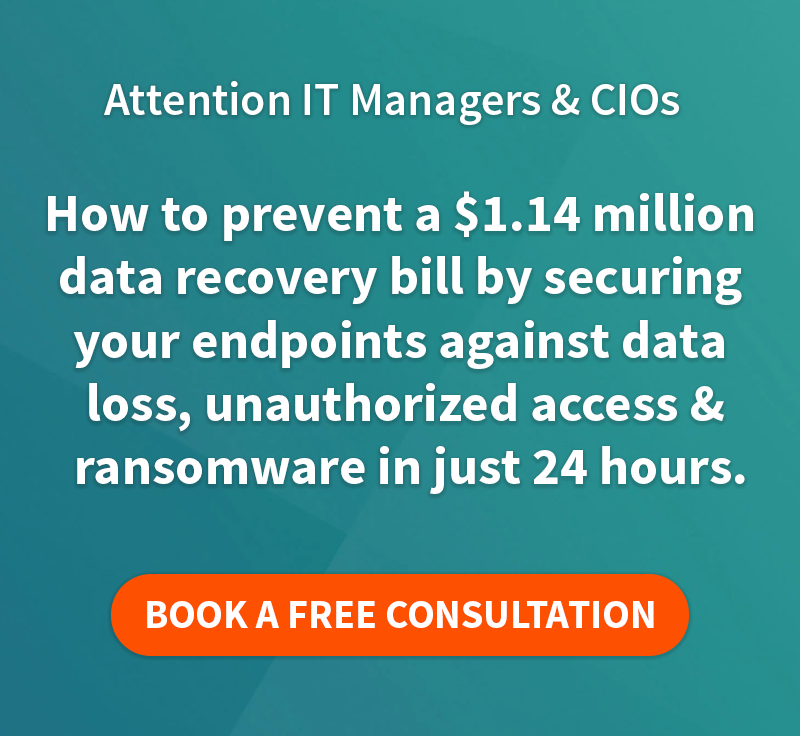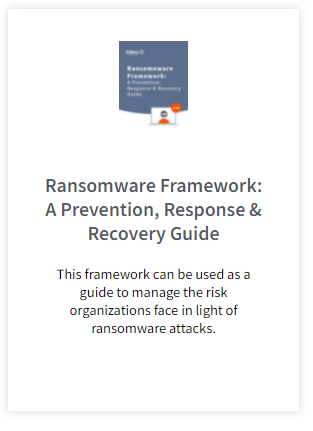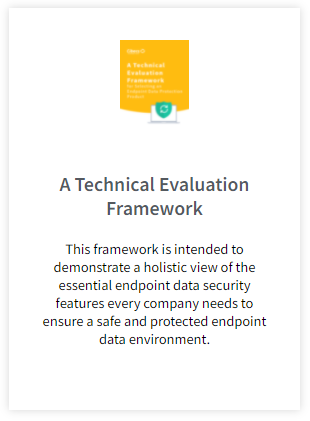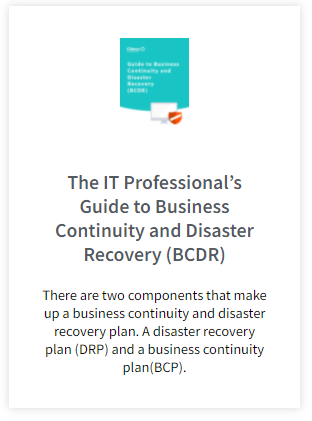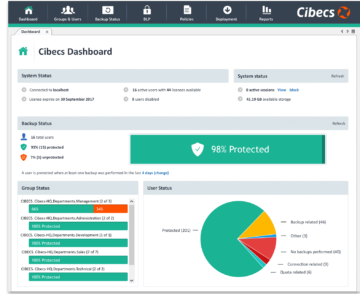The best way to protect yourself, your users and your business against ransomware is by setting up a proactive defence. The ransomware statistics paint a frightening picture for anyone in charge of IT: In Q3 2016 alone, 18 million new malware samples were captured. Source: Panda Labs What that means is that the criminals…
HIPAA compliance: An introduction to how enterprise endpoint data backup software simplifies HIPAA compliance
Understanding HIPAA requirements
HIPAA compliance is a legal imperative for all health plans or health care providers who transmit health information in electronic form. Failure to comply with HIPAA regulations results in financial penalties, legal action and reputational damage.
One of the most actionable aspects of HIPAA is effective protection of patient data. Not only can an organization implement solutions that address data security, but tangible operational benefits can be derived from these solutions, while removing the risk of data loss or data breach and the resulting failure to comply with legislation.
HIPAA covered Entities require the following four basic foundational benefits, in accordance with compliance needs, from a data protection solution:
- Centralized control of organizational data
- Automated, simple & secure data backup
- Fast & reliable data recovery
- Data reporting for simpler audits and compliance reviews
HIPAA
In 1996, Congress enacted HIPAA, The Health Insurance Portability & Accountability Act, aimed at increasing the efficiency of the health care system, improving the protection of health information by forming transaction standards for the use and dissemination of this information, and setting privacy standards for the storage and disclosure of an individual’s health data.
HIPAA consists of five parts:
Title1 – Health Insurance Portability – Helps workers maintain insurance coverage when they change jobs
Title 2 – Administrative Simplification – Standardizes electronic health care-related transactions, and the privacy and security of health information
Title 3 – Medical Savings Accounts & Health Insurance Tax Deductions
Title 4 – Enforcement of Group Health Plan provisions
Title 5 – Revenue Offset Provisions
The enactment of HIPAA has had various consequences for the Health Industry, resulting in the requirement for more regulated and standardised information security, a significant increase in the importance of compliant data protection measures and further establishing the definite business need for an effective data protection solution that caters to HIPAA regulations and standards.
Administrative Simplification: Data Privacy and Security Rules
An effective endpoint data protection solution becomes a paramount imperative when implementing compliance measures in accordance with HIPAA Administrative Simplification rules.
Per the requirements of Title II, The Administrative Simplification provision of HIPAA has five rules
- The Privacy Rule
- The Transactions and Code Sets Rule
- The Security Rule
- The Unique Identifiers Rule
- The Enforcement Rule.
The Privacy Rule
The Privacy Rule has detailed requirements on the use, disclosure and dissemination of Personal Health Information and requires a record or ‘accounting’ of any disclosures.
Administrative Requirements
It also introduces numerous administrative requirements, including the following:
- Designation of a privacy official responsible for development of policies and procedures for the use and disclosure of protected health information.
- Implementation of administrative, technical and physical safeguards to protect the confidentiality and integrity of PHI.
- Development and enforcement of sanctions for failure to comply with policies and procedures.
- Development of procedures to mitigate adverse effects of a prohibited use or disclosure.
The Security Rule
The Security Rule legislates the means that should be used to protect all patient data, including ePHI – electronic Patient Health Information. It requires that covered entities have appropriate Administrative Procedures, Physical Safeguards, and Technical Safeguards to protect access to Personal Health Information.
Examples of required safeguards include:
- Clear Access Control policies, procedures, and implementation of technologies to restrict who has authorized access to patient data.
- Effective Data Backup and Disaster recovery planning
- Establishment of technical security mechanisms such as data encryption
The Security rule requires that data confidentiality be maintained and protected, data integrity ensured, and that data is available for fast and secure recovery after any data loss incident.
HIPAA: Who Must Comply
Those who need to comply with HIPAA fall into two different categories:
Covered Entities: all health plans, health care clearinghouses, or health care providers who transmit health information in electronic form.
Business Associates of those Covered Entities. A Business Associate is someone who performs activities on behalf of, or provides certain services to, a covered entity, involving the use or disclosure of individually identifiable health information. Business associate functions or activities on behalf of a covered entity include claims processing, data analysis, utilization review, and billing.
Business associate services to a covered entity are limited to legal, actuarial, accounting, consulting, data aggregation, management, administrative, accreditation, or financial services.
Why comply?
HIPAA compliance is a business imperative for Covered Entities and their Business Associates. Failure to comply with legislation will result in:
- Financial penalties
- Legal consequences
- Reputational damage
The Enforcement Rule
The HIPAA Enforcement Rule establishes rules governing the compliance responsibilities of covered entities with respect to cooperation in the enforcement process. It also provides rules governing the investigation by HHS of compliance by covered entities, both through the investigation of complaints and the conduct of compliance reviews.
The Enforcement Rule entrenches rules governing the process and grounds for establishing the financial penalty where HHS has determined a covered entity has violated a requirement of a HIPAA Rule. This regulation also establishes rules governing the procedures for hearings and appeals where the covered entity challenges a violation determination.
The Enforcement rule enforces financial and legal consequences to non-compliance, increasing the obvious necessity of finding a solution that addresses HIPAA requirements.
Want to simplify HIPAA compliance is your organisation?
Read our comprehensive blog on How endpoint data backup software simplifies HIPAA compliance
FEATURED POSTS
IT Managers: How to Protect Your Users Against Ransomware
The best way to protect yourself, your users and your business against ransomware is by setting up a proactive defence. The ransomware statistics paint a frightening picture for anyone in charge of IT: In Q3 2016 alone, 18 million new malware samples were captured. Source: Panda Labs What that means is that the criminals…
Cibecs Joins Silicon Valley Top 20
Cibecs Joins Silicon Valley Companies to be Listed on Top 20 Most Promising Storage Solution Providers Cibecs, a leading South African endpoint backup, protection and security solution, has been recognised as one of the 20 Most Promising Storage Solutions by CIO Review. The list, compiled by industry insiders, highlights leading global technology providers that offer effective…
4 Signs You Need a New Endpoint Data Backup Solution
With more workers depending on laptops it is more important than ever to ensure that the work protected and stored on those devices is backed up and protected. Forrester Research says that 45% of corporate executives don’t follow policies for data use and handling. Underlining how at risk almost half of a business’s data actually…
